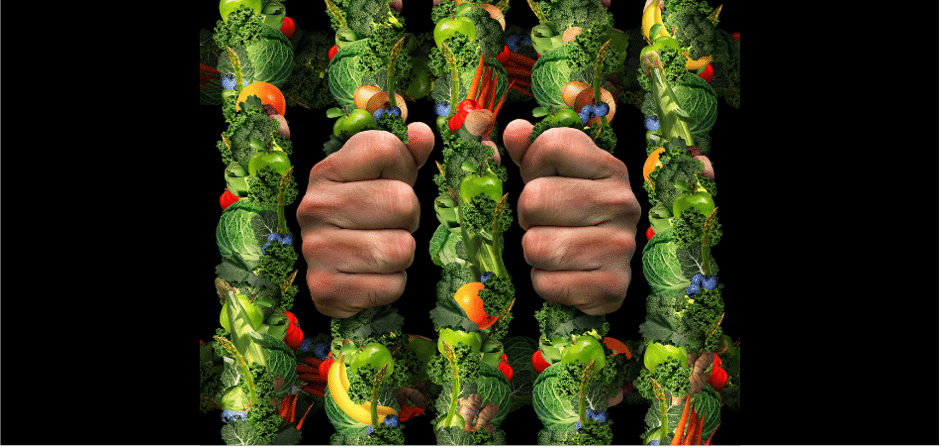Healthy, proper, wholesome eating is almost a separate culture and, for many, almost a religion. Many people must realize that good nutrition can mean the right foods for certain deficiencies, such as when a patient needs to gain weight after an injury. Healthful eating, in general, has too blurred a profile to state what it is specifically and unambiguously, and healthy eating has varied according to fashion and period in history. So, it is not always worth chasing the trendy and not always what suits some people who advertise their lifestyle, which suits others. Here, you should realize that dietetics is an extremely complex field of science, and you can see it for yourself if you contact essay writing services uk and ask them to compose an argumentative medical paper on this topic.
Next, we will discuss the so-called paradox of healthy eating, when fixation on what is considered correct, good, and useful can actually harm one’s body and affect one’s mental state.
Striving for the Perfect Diet
It is worth starting because the ideal and correct diet often implies a really adequate nutritional formula. That is, a sufficient amount of proteins, fats, micronutrients, and carbohydrates are necessary for the normal functioning of all body systems and maintaining psychological stability. Nowadays, “ideal” nutrition is more of an advertising brand that many Influencers, fitness bloggers, and other media personalities promote. At the same time, people who look like fitness models rarely discuss that achieving such a form requires years of training, iron discipline, and often genetic predisposition. And so their advice on nutrition to listen to, of course, you can, but it is worth approaching everything with a cool head.

The other side of this problem is fashion. Certain periods were popular low-fat, sugar-free, low-protein, or low-carbohydrate diets. In short, diets with a specific group of foods were strictly limited. At the same time, all such diets have several contraindications and disadvantages. Various violations can pay for quick and short-term weight loss.
For example, diets such as paleo, keto, or veganism advocate the refusal of certain groups of products. The paleo diet eliminates grains, legumes, and dairy products, the keto diet restricts carbohydrates, and veganism restricts all animal products. These diets are often presented as a panacea for all illnesses, which creates pressure for people to follow them without considering their bodies.
What Is Orthorexia, and Why Is It Dangerous
Orthorexia is an eating disorder. It has yet to have an official classification in the list of diseases because it has yet to be possible to define the patterns clearly. Still, many doctors and nutritionists already use this term quite regularly. In brief, it is an obsessive and almost manic desire to eat only “healthy” foods. Unlike anorexia or bulimia, orthorexia focuses not on the quantity of food but on its quality. People with this disorder spend hours planning and preparing “perfect” meals, eliminating foods that don’t fit their healthy eating ideas. There are signs of social isolation. For example, a person may refuse to meet with family or friends because they can’t provide themselves with a “proper” meal.
The Downside of Popular Mono-Diets
Publicized by stars or Internet bloggers, mono-diets suggest, for example, completely excluding carbohydrates from the diet or reducing to absurd minimum fat have quite concrete consequences in the long term if a person will strictly follow such advice. For example, the keto diet, which involves a significant restriction of carbohydrates, can lead to a lack of fiber, which in turn contributes to constipation and other digestive problems. In addition, excluding fruits and grains can lead to a deficiency of B vitamins, essential for normal nervous system function.

Vegan diets that exclude all animal products can cause deficiencies in vitamin B12, which is important for nervous system health and hematopoiesis. Without adequate replacement, such as supplements or fortified foods, B12 deficiency can lead to anemia and neurological problems.
It’s important to realize that you can’t pick a diet from a brochure. If a vegan diet has become your choice because of humane beliefs, it is worth consulting your doctor regularly to make the right supplements to fill in the missing elements. This is generally the case with every diet. You need to do a review of sorts. For example, when you are going to buy essay, you don’t do it spontaneously on the first link you come across. You study the service and predict the result. You should do the same with diet.
Finding a Balance and a Sensible Approach
People who tend to follow strict diets and choose only certain foods often suffer from isolation because they develop a fear of breaking the diet by going to a place with “uncontrolled space .” At the same time, by breaking the diet themselves, people may feel guilt and desire to punish themselves for breaking the regime. Psychologists also note that striving for the perfect diet can be a way to control other anxiety-provoking aspects of life. In this case, eating becomes a compensatory mechanism, which leads to dependence on the strictness of the rules and further deterioration of the mental state.
Therefore, it is worth realizing that there must be a balance in everything, and you should not be upset or blame yourself if you slightly violate the overly strict dietary rules you have set for yourself. Many nutritionists advise people to try intuitive eating to avoid such emotional swings. That is, adhere to a reasonable framework of nutrient intake and daily calorie intake, but at the same time, listen to your body’s signals. And if the body sometimes insistently demands a donut from you, give yourself a donut.
Conclusion
Nutrition should not become a dogma. There are different diets, but scientists have long established the optimal consumption rate of various nutrients. The best optimal option is to follow this norm by selecting a list of foods you like most while certainly not overeating or starving.
